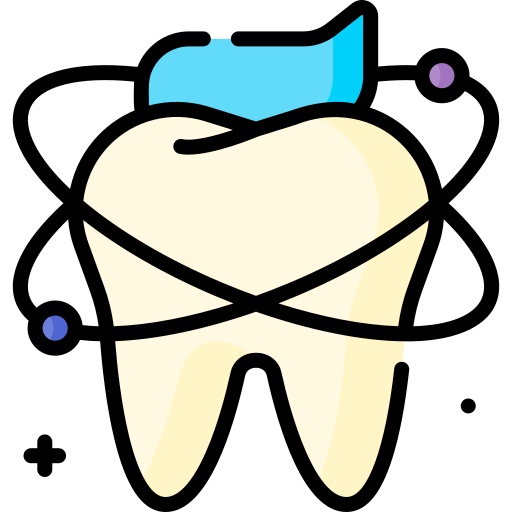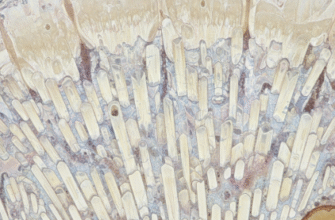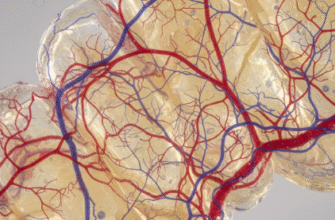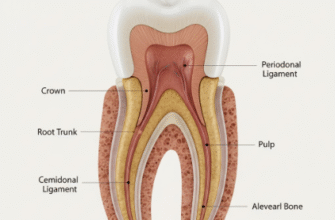It’s a common scene: you’re at the dentist, and the conversation inevitably turns to sugar. While it’s true that sugary treats aren’t a friend to your teeth, the story of nutrition and oral health is far more complex and fascinating than just avoiding sweets. What you eat, and even how you eat it, plays a profound role in the well-being of your entire mouth, from the strength of your enamel to the health of your gums.
Think of your diet as the fuel and building materials for your body, and your mouth is no exception. Just like a house needs a strong foundation and quality materials to withstand the elements, your teeth and gums rely on a steady supply of specific nutrients to stay robust and resilient against daily challenges.
The Essential Toolkit: Nutrients for a Healthy Smile
Your mouth is a dynamic environment, constantly undergoing processes of wear and repair. Supplying it with the right nutrients is key to tipping the balance in favor of health.
Calcium and Phosphorus: The Dynamic Duo for Strength
These two minerals are the superstars when it comes to hard tissues. Calcium is the primary component of your tooth enamel and dentin, the layer beneath it. It also plays a vital role in the health of your jawbone, which anchors your teeth. Phosphorus works in tandem with calcium, helping your body absorb and utilize it effectively to build and maintain these structures. You’ll find these powerhouses in dairy products like milk, cheese, and yogurt. Other good sources include canned fish with bones (like sardines), almonds, leafy green vegetables, and tofu.
Vitamin D: The Calcium Chaperone
You can consume all the calcium you want, but without adequate Vitamin D, your body won’t be able to absorb it efficiently. Vitamin D acts like a key, unlocking calcium’s potential to fortify your teeth and bones. Your body can synthesize Vitamin D from sunlight exposure, but dietary sources are also important, especially during winter months or for those who spend a lot of time indoors. Fatty fish like salmon and mackerel, egg yolks, and fortified foods such as milk, orange juice, and cereals are excellent ways to boost your intake.
Vitamin C: Guardian of the Gums
Healthy gums are crucial for supporting your teeth. Vitamin C is essential for the production of collagen, a protein that forms the connective tissue in your gums. Strong, healthy gums are less prone to inflammation and bleeding. A deficiency in Vitamin C can lead to weakened gums, making them more susceptible to problems. Load up on citrus fruits, berries (strawberries, blueberries), bell peppers, broccoli, kiwi, and tomatoes to ensure you’re getting enough of this vital nutrient.
Vitamin A: Protector of Soft Tissues
Vitamin A plays a critical role in maintaining the health of your mucous membranes, the soft tissue linings in your mouth. It also supports saliva production, which is your mouth’s first line of defense against bacteria and food debris. Healthy saliva flow helps to wash away particles and neutralize harmful acids. Good sources of Vitamin A include liver, fish oils, eggs, and dairy products. Your body can also convert beta-carotene from orange and yellow fruits and vegetables (like carrots, sweet potatoes, and apricots) and dark leafy greens into Vitamin A.
B Vitamins: Keeping Mouth Sores at Bay
The B-complex vitamins, including riboflavin (B2), niacin (B3), and cobalamin (B12), are important for overall oral health. They help in cell growth and repair, and deficiencies can sometimes manifest as mouth sores, cracks at the corners of the mouth, or a sore tongue. You can find B vitamins in a wide range of foods, including meat, poultry, fish, eggs, dairy products, legumes, and fortified grains.
Protein: The Repair Crew
Protein is fundamental for building and repairing all tissues in your body, including those in your mouth. It’s essential for maintaining the integrity of your gums and other oral structures. Ensure your diet includes adequate protein from sources like lean meats, poultry, fish, eggs, dairy, beans, lentils, and nuts.
Dietary Culprits: Foods That Challenge Oral Health
While some foods build up your oral defenses, others can actively work against them. Understanding these can help you make smarter choices.
The Obvious Offender: Sugar
We all know sugar is bad for teeth, but why? Certain bacteria in your mouth feed on sugars and starches. As they metabolize these carbohydrates, they produce acids as a byproduct. These acids attack your tooth enamel, leading to demineralization – the loss of minerals from the tooth surface. Over time, this can result in cavities. It’s not just about candy and soda; be mindful of hidden sugars in processed foods, sauces, and even some “healthy” snacks.
Acidic Assaults: Direct Enamel Erosion
Some foods and drinks are inherently acidic and can erode tooth enamel directly, even without the help of bacteria. Think citrus fruits, tomatoes, vinegar-based dressings, sodas (even diet ones), sports drinks, and wine. While these can be part of a healthy diet (especially fruits), moderation is key. A helpful tip: rinse your mouth with plain water after consuming acidic items, but wait at least 30 minutes before brushing. Brushing immediately can scrub the acid further into the softened enamel.
Sticky Situations: Prolonged Exposure
Foods that are sticky, like caramels, taffy, and even some dried fruits, can cling to your teeth for extended periods. This gives sugars more time to interact with bacteria and produce acids, increasing the risk of decay. If you do enjoy these treats, try to have them with a meal rather than as a standalone snack, and follow up with a good rinse or brush.
A well-rounded diet, emphasizing whole foods, is a cornerstone of good oral health. Pairing smart food choices with consistent oral hygiene, including regular brushing and flossing, creates a powerful defense for your teeth and gums. Remember, these habits work together to protect your smile for the long term.
Dietary Champions: More Than Just Nutrients
Beyond specific vitamins and minerals, some foods offer additional benefits for your mouth.
Crunchy Choices: Nature’s Toothbrushes
Foods with a firm, crunchy texture, like apples, carrots, celery, and cucumbers, can act like natural abrasives. As you chew them, they can help to gently scrub away plaque and food particles from your teeth. They also stimulate saliva production, which, as we’ll see, is incredibly important.
Water: The Unsung Hero
Plain water is arguably the best beverage for your oral health. It helps to rinse away food debris and sugar residues, keeping your mouth cleaner between brushings. If your tap water is fluoridated, it provides an extra layer of protection by helping to remineralize enamel. Staying hydrated also ensures optimal saliva production.
Dairy Delights: Beyond Calcium
We’ve mentioned dairy for its calcium and phosphorus content, but cheese, in particular, has another trick up its sleeve. Studies suggest that eating cheese can help to neutralize plaque acids and stimulate saliva. Milk and plain yogurt also contribute to a healthier oral environment.
The Potential of Probiotics
The idea of “good” bacteria isn’t new for gut health, and research is increasingly exploring the role of probiotics in oral health. Certain strains of beneficial bacteria may help to combat the harmful bacteria responsible for cavities and gum issues. While more research is needed, foods like yogurt with live active cultures and fermented foods might offer some benefits to your oral microbiome.
The Vital Role of Saliva
Saliva is often overlooked, but it’s a true workhorse in maintaining oral health. It’s more than just water; it contains enzymes, minerals, and buffering agents.
Saliva’s key functions include:
- Washing away food particles: It acts as a natural rinse.
- Neutralizing acids: It helps to buffer the acids produced by bacteria or consumed in food, protecting enamel.
- Remineralization: Saliva is rich in calcium and phosphate ions, which it can deposit back onto tooth surfaces that have been demineralized by acids, helping to repair early damage.
- Fighting bacteria: It contains antimicrobial compounds that help control harmful bacteria.
- Aiding digestion: Enzymes in saliva begin the process of breaking down food.
Your diet directly impacts saliva. Chewing food, especially fibrous and crunchy items, stimulates saliva flow. Staying well-hydrated is also crucial for maintaining adequate saliva production. Certain medications and medical conditions can lead to dry mouth (xerostomia), which significantly increases the risk of oral health problems, underscoring saliva’s importance.
Practical Steps for an Oral Health-Friendly Diet
Putting this knowledge into practice doesn’t have to be complicated. Here are some actionable tips:
- Eat balanced meals: Aim for meals that include a variety of food groups – proteins, whole grains, fruits, vegetables, and healthy fats. This ensures a broad spectrum of nutrients.
- Limit frequent snacking: Every time you eat or drink something sugary or starchy, you’re exposing your teeth to an acid attack for about 20 minutes. Constant snacking means your teeth are under siege more often. If you do snack, choose tooth-friendly options like nuts, cheese, or raw vegetables.
- Make smart beverage choices: Water should be your go-to drink. Limit sugary drinks like sodas, fruit juices, and sweetened coffees/teas. If you do consume them, do so with meals rather than sipping them throughout the day.
- Read food labels: Be aware of hidden sugars in processed foods. Sugar can go by many names (e.g., high-fructose corn syrup, dextrose, sucrose, maltose).
- Finish meals with a tooth-friendly food: Eating a small piece of cheese or some crunchy vegetables at the end of a meal can help neutralize acids and stimulate saliva.
A Lifelong Partnership: Diet and Your Smile
The connection between what you eat and the health of your mouth is undeniable and lifelong. The dietary choices you make every day contribute to the long-term strength and resilience of your teeth and gums. It’s not about perfection, but about making consistent, informed choices that support your overall well-being, which naturally includes a vibrant, healthy smile.
By understanding the role specific nutrients play, recognizing which foods can be problematic, and embracing those that offer protective benefits, you empower yourself to take an active role in your oral health. Coupled with good oral hygiene practices, a mindful approach to nutrition is one of the best investments you can make in a lifetime of healthy smiles.








